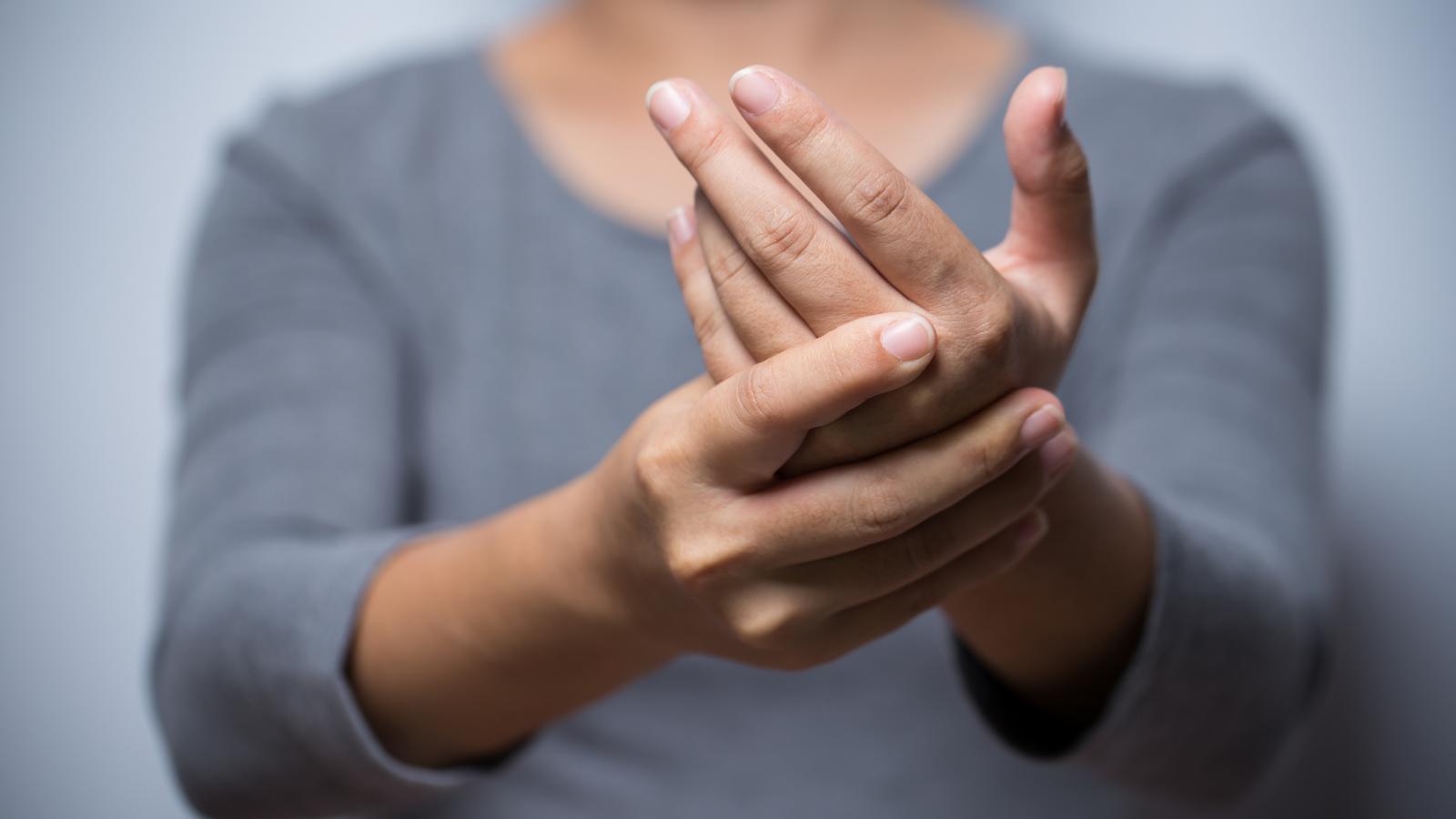Nerve changes (peripheral neuropathy)

What is it?
Peripheral neuropathy (“pear-riff-air-al nure-o-pathy”) is damage to your nerves, mainly the nerves in your hands and feet.
This side-effect usually goes away after treatment stops. But it may take several months or even years for the numbness to fully go away. Occasionally the changes may be permanent. It’s also possible for peripheral neuropathy symptoms to appear some time after treatment.
What causes nerve changes?
- Chemotherapy and other cancer drugs
- A tumour growing on a nerve
- Surgery
- Radiotherapy
- Vitamin deficiency
- Paraneoplastic peripheral neuropathy. This condition happens when your body makes a substance that damages your nerves. This is most common with lung cancer, myeloma and lymphoma.
Your risk of peripheral neuropathy increases if you:
- Have diabetes
- Have a poor diet
- Drink a lot of alcohol
- Have been treated with one or more chemotherapy drugs
What are the symptoms of peripheral neuropathy?
- Pain. This can be mild or severe. It is described as burning, sharp, stabbing or like an electric shock. Some people lose the sensation of pain.
- Numbness or sensation changes. You may have a numbness in the affected area. This often first happens in your fingertips and feet. As a result, you may find it hard to do up buttons or tie your shoelaces.
- Muscle weakness. This will depend on which muscle is affected. You may find it is difficult to walk, climb the stairs, hold a knife or fork, or that you are dropping things or stumbling.
- Sensation changes. You may feel heat or warmth when you touch something cold. You may also find that something that was not painful before now is. For example, bedclothes on your legs.
- Other symptoms. It may be difficult to keep your balance or you may get dizzy when you stand up. You may also feel very tired, have mood swings and have difficulty remembering things. If the nerves controlling your bowel are affected, you might get bloated or have constipation.
You will not get all of these symptoms. Remember that symptoms vary from person to person.
Tell your medical team straight away if you have any symptoms, so that they can help to prevent any further nerve damage.
Tell your medical team straight away if you have any symptoms, so that they can help to prevent any further nerve damage.
How is peripheral neuropathy treated?
If you have peripheral neuropathy your doctor will aim to prevent any further damage to your nerves. If your drug treatment is causing the problem, your treatment may be changed or stopped for some time. Your doctor may also prescribe folic acid, vitamin B12 or other medications to reduce the symptoms and promote nerve healing.
Treatment for nerve pain
- Medications such as tricyclic antidepressants, anticonvulsants, lidocaine patches, opioids and selective serotonin and norepinephrine reuptake inhibitors (SSNRIs).
- Nerve blocks: A local anaesthetic can be injected around a nerve to block the pain.
- Transcutaneous electrical nerve stimulation (TENS): Small pads on the skin which give an electrical impulse can be used to treat your pain.
- Acupuncture: Fine needles can be put on your skin at particular points to relieve any pain. Check with your consultant to make sure this is safe for you.
- Massage: This can improve your circulation and relax your muscles.
- Other: Physiotherapy or occupational therapy may also help.
Peripheral neuropathy and your emotions
Having peripheral neuropathy can reduce your mobility, stop you from working or make everyday tasks more difficult. This can leave you feeling angry, frustrated or depressed. It may help to talk about how you’re feeling. Try sharing your feelings with friends or family, your medical team or a counsellor. The Irish Cancer Society funds counselling at many local cancer support centres.
What can I do?
Tips and hints – coping with peripheral neuropathy
- Keep your hands and feet warm by wearing gloves and socks.
- Take regular exercise or as advised by your doctor or physiotherapist.
- Have a well-balanced diet and take vitamin supplements if advised by your doctor.
- Get advice from the dietitian on how to lose weight if you are overweight. This can reduce pressure on your nerves endings.
- Quit smoking, as cigarette smoke narrows the blood vessels to your nerves.
- Avoid alcohol or reduce the amount you drink.
- Treat any cuts or injuries to your feet or hands immediately.
- Take good care of your feet, especially if you also have diabetes or an impaired ability to feel pain. Keep feet clean and avoid any tight-fitting shoes, socks or tights. Don’t go barefoot.
- Be careful with hot liquids. Wear gloves when washing the dishes and test your bath water to make sure it is not too hot.
- Avoid exposure to toxins like pesticides, heavy metals, etc.
- Acupuncture may help, so ask your doctor for advice.
- Remove clutter from your home to prevent falls. Make sure you have plenty of light.
- Wear clothes with zips or velcro if you’re having difficulty with buttons.
- Speak to a physiotherapist about exercises and walking equipment.
- Speak to an occupational therapist about equipment for your house. For example, handrails.
- Avoid pressure on your legs or hands for a long time. For example, do not cross your legs.
For more information
Phone
1800 200 700



